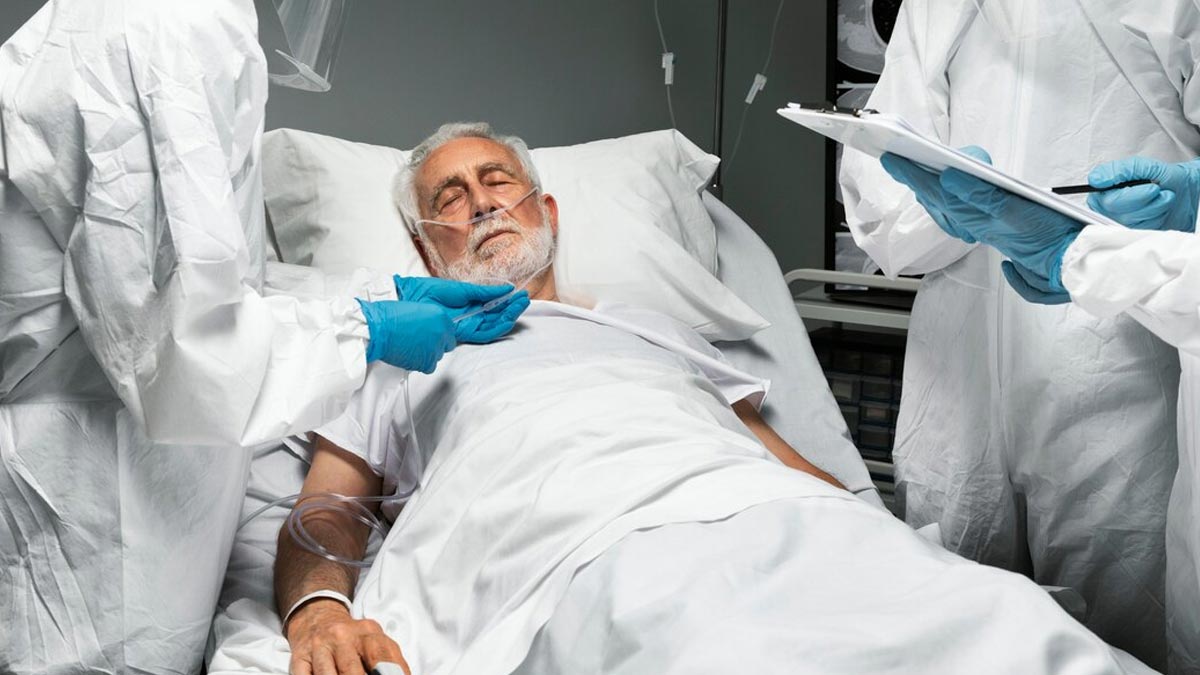
Long COVID is a dire consequence of a coronavirus infection, that can manifest debilitating conditions that might even result in death. Recently, the Centres for Disease Control and Prevention (CDC) revealed that over 3,500 americans have died from long covid-related illness in the first 30 months of the COVID pandemic.
Table of Content:-
In light of these concerning statistics, the team of OnlyMyHealth spoke to Dr Hari Kishan, MBBS, MD-Internal Medicine, MRCP Consultant General Physician, Kamineni Hospitals, LB Nagar, to know about the warning signs of long COVID, so the masses can be aware and avail timely intervention.
What Is Long COVID?

The CDC analysed the death certificates of Americans from January 2020 to the end of June 2022. As per their analysis, 3,544 deaths in United States occured due to long COVID related complications. Although this number comprises less than 1% of the total COVID related deaths during this time perieod, 3,000 plus deaths is hard to ignore.
This is also because, globally, as a Lancet study titled ‘Long COVID: 3 years in’ revealed, at least 65 million people suffer from long COVID.
“Long COVID is characterised by a range of symptoms that persist for weeks or months after the initial infection of COVID-19,” explained Dr Kishan. According to a study published in The Lancet, long COVID occurs in almost 10-20% of people infected by SARS-CoV-2, and shows no discrimination in the wide range of people it infects.
Although chances of contracting long COVID is low, here’s why you should be aware of the warning signs of long COVID- As per a study published in the Journal Neurology, Neuroimmunology & Neuroinflammation, long COVID can be present in people who tested negative for COVID at the time of initial infection.
This can result is a severe manifestation of long COVID weeks or months later, without the infected person realising that they were even infected with COVID in the first place.
Long COVID Warning Signs

“Long COVID can develop in people who initially tested negative for COVID-19, or had mild or asymptomatic infection,” said Dr Kishan. As per a study published in the Journal Pathogens, long COVID in 30–60% of patients who were asymptomatic or had mild COVID.
Listing the warning signs of long COVID that manifest differently in each individual, he shared:
- Fatigue and weakness
- Difficulty breathing post recovery
- Brain fog, confusion, poor memory, and lack of focus
- Chest pain and discomfort
- Join inflammation and pain
- Frequent severe headaches
- Loss or changes in smell or taste
- Fluctuating heartbeats
- Nausea, diarrhoea, or abdominal pain
- Anxiety, depression, or mood swings
If you are curious what increases the linkelihood of getting long COVID, the CDC shared that people with prior history of severe COVID illness are at an increased risk. So are people who have been infected by SARS-CoV-2 too many times.
According to a study led by epidemiologist Benjamin Bowe, which followed veterans from United States for two years, reinfection increases the risk of long COVID across multiple organ systems.
As the new Omicron sub variant JN.1 is prevailing and causing a new surge in COVID cases across the world, you must take all the necessary precautions to prevent getting COVID at all. Practice COVID appropriate measures like wearing a mask in public places especially when indoors, use sanitiser generously, regularly wash hands after touching common surfaces, practice social distancing, and maintain a healthy lifestyle.
Also watch this video
Read Next
As UNICEF Shares That Girls Are Twice More Likely To Catch HIV, Expert Shares Preventive Measures
How we keep this article up to date:
We work with experts and keep a close eye on the latest in health and wellness. Whenever there is a new research or helpful information, we update our articles with accurate and useful advice.
Current Version